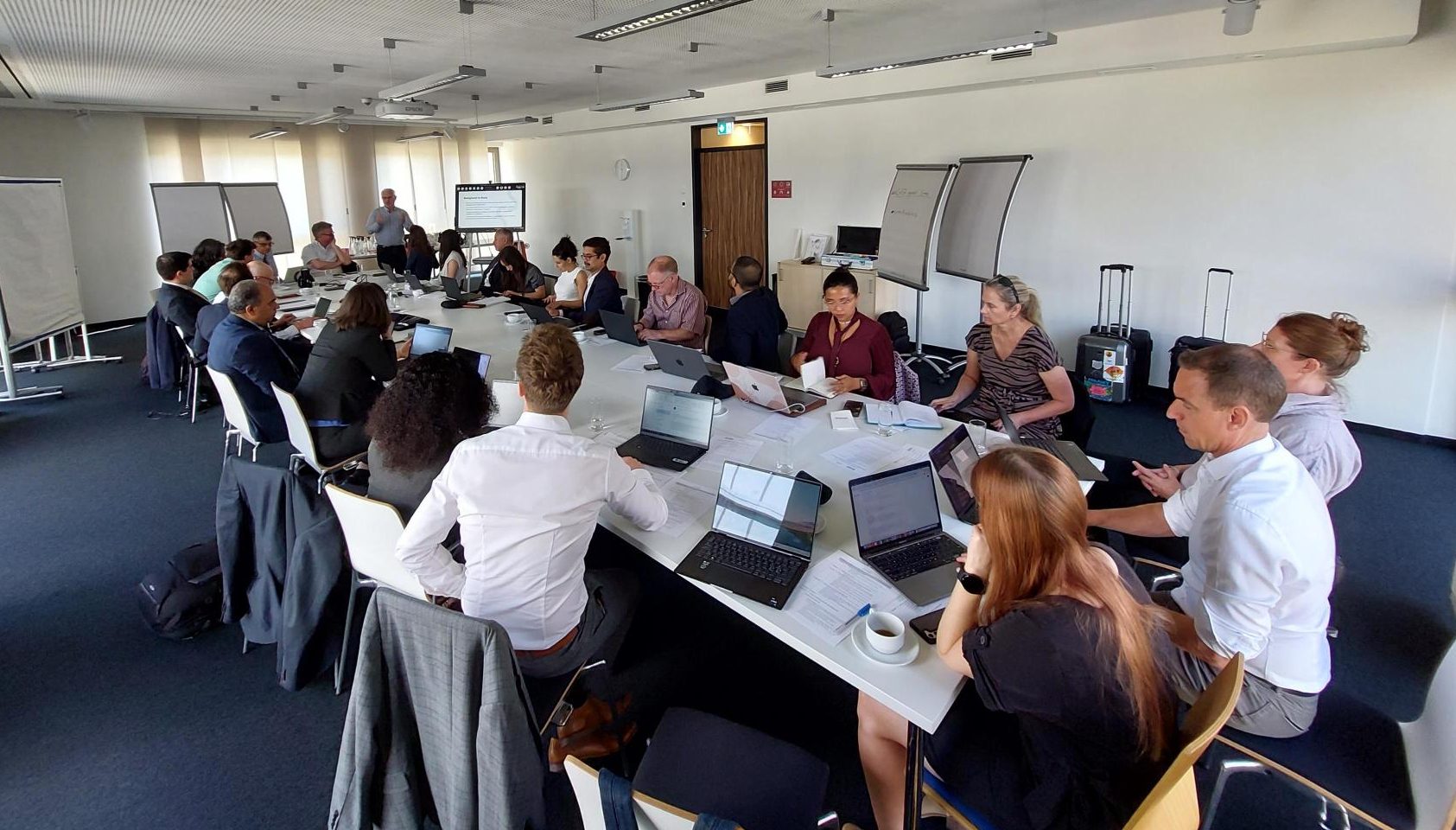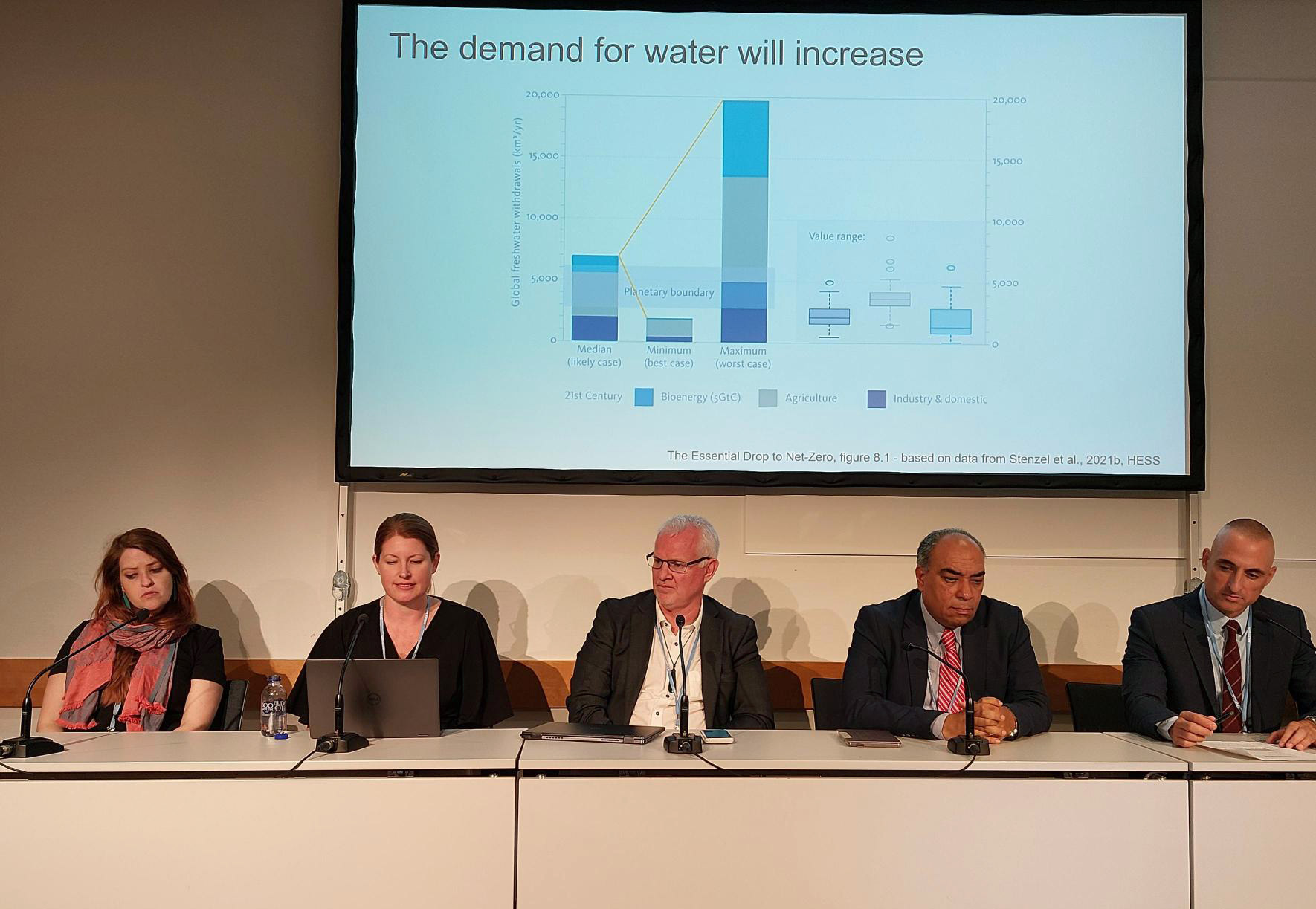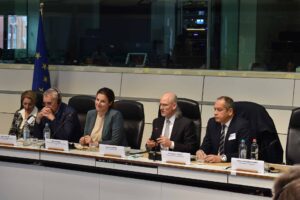Water-wise climate policy on the road to COP28
The first-ever Global Stocktake on climate action shifts into a higher gear after the recent Bonn Climate Change Conference. Here are four important take-aways from SIWI, showing what needs to happen at COP28 in December.
The Bonn Climate Change Conference, on 5-15 June, was the last chance to influence the Global Stocktake, which should evaluate progress on the Paris Agreement and ensure that countries correct the course accordingly. It is clear that the world is not on track to achieve the targets, and the Bonn meeting revealed how divided political leaders are on how to best respond.
SIWI contributed actively to the Bonn conference, sharing the latest research on water in climate action, especially in mitigation, but also listened attentively to learn what barriers countries experience and how they are overcoming them. Here are four key takeaways that should help us chart a better course to meet the Paris goals.
1) Finance is the biggest barrier to change.
In the side event Taking Stock of Water-Wise Climate Policy, SIWI and partner organizations welcomed representatives from Cabo Verde, Egypt, The Netherlands, Panama, the United Arab Emirates and the United Kingdom for a roundtable discussion about what water-wise climate policy looks like in their respective countries.
Despite rich and varied examples of integrated water and climate solutions in each of the countries, all expressed concern about ensuring the necessary financing for integrated policy coherence and increasing resilience on the ground.
The issue of financing was also one of the most contested throughout the Bonn meeting, with governments from low-income countries warning that climate-induced disasters are pushing them into a debt trap which makes their societies more and more vulnerable. The debate will undoubtedly continue at the Paris Finance Summit this week.

2) Water for adaptation, mitigation, and co-benefits.
One bone of contention has often been the level of ambition when it comes to climate adaptation versus mitigation strategies. But this is something of a false dichotomy, according to the landmark report Essential Drop to Net Zero: Unpacking Freshwater’s role in climate change mitigation which SIWI’s Dr. Malin Lundberg Ingemarsson presented on two occasions during the Bonn meeting.
The report describes how climate change impacts water resources—droughts, floods, melting glaciers, and the list goes on – at enormous human, environmental and economic cost. But it also highlights that very few mitigation strategies can be implemented if water is lacking. To achieve the necessary transformations of food or energy systems, it is essential to invest in improved management of water.
Many of these solutions have important co-benefits that help people and societies adapt to the impact of climate change. Water can serve as the connector when identifying integrated solutions to the global challenges of climate, biodiversity, food security, etc.
The Essential Drop to Net Zero report shines light on research showing for example that water-smart landscapes management is essential for disaster risk reduction and food security but also for greenhouse gas sequestration. It is a clear reminder that everyone has a shared interest in making the most powerful mitigation and adaptation solutions available across the world.
3) Increase political priority for water by putting it at the heart of the NDCs.
Discussions in Bonn also focused on enhanced nationally determined contributions (NDCs) as an outcome of this year’s Global Stocktake exercise. While discussions acknowledged some progress, there was an overall consensus that greater ambition and political will need to be manifested in the next round of enhanced NDCs, to be completed by 2025. SIWI’s David Hebart-Coleman presented the latest analysis of the role of water in national climate plans, which has become much more prominent in recent years. But most countries can still learn a lot from best practices, which will be presented in a forthcoming report in the next few weeks.
“We truly need political leadership and inspiring collective action from all sectors to put promises into action.”
4) Rethink the role of nature for more innovative climate solutions.
A strong trend at this year’s Bonn Climate Change Conference was a focus on nature and nature-based solutions, something that is high on the agenda of the COP28 presidency. What is noticeable however is a growing interest in how nature-based solutions can be integrated into traditional approaches. The connection between nature and cities is also attracting a lot of attention.
Thomas Rebermark, Director of SIWI’s Swedish Water House, feels that the Bonn meeting is just one step in a more strategic pathway towards water and climate security.
“Water-related and nature-based climate solutions are still largely untapped, though more and more organizations are starting to see the potential. Both our report and the new assessment from the IPCC clearly describe the critical role water plays in climate action.
At this stage, however, we truly need political leadership and inspiring collective action from all sectors to put promises into action. This should be reflected not only in the outcomes of the Bonn Climate Change Conference , but at the UNFCCC COP28 and especially throughout next year when countries update their contributions to the Paris Agreement. Water is a powerful tool to fast-track climate mitigation and boost resilience. Let´s embark on that path across sectors,” Rebermark says.








